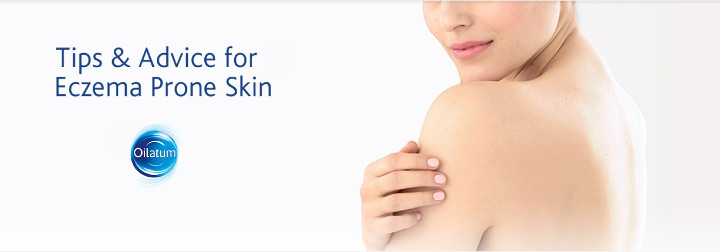
What is eczema?
Healthy skin contains fats and oils which help to maintain moisture by creating a protective layer. In eczema prone skin, the cells don’t produce as many fats and oils and so retain less water. This leads to the protective layer being weaker, allowing irritants and allergens to enter the skin leading to irritation.
What are the symptoms of eczema?
Eczema can cause the skin to become itchy, red, dry and cracked. In severe cases there may be weeping, crusting and bleeding. Eczema usually occurs in areas where the skin folds, such as: Behind the knees, inside the elbows, the sides of the neck and also around the eyes and ears.
How much emollient should I use on my child?
Parents of children with eczema should try to bathe their child in an emollient wash product once a day. Emollient creams should be used frequently; emollients should be used in large quantities, applied over the whole body. For generalised eczema, NICE guidance recommends use of 250-500 grams of leave-on emollient per week.
How common is eczema?
Eczema is an extremely common condition affecting one in five children in the UK. In fact, 8 out of 10 cases occur before the child turns 5. Whilst people usually grow out of eczema, one in twelve adults have eczema.
How should I treat dry and eczema prone skin?
The most common method of treatment is the use of emollients. Emollients are an effective treatment in eczema and dry skin conditions to moisturise the skin by soothing and softening. Speak to your pharmacist or doctor for advice.
How can I protect mine and my child’s skin during winter?
- Make sure the skin is moisturised using an oil-based moisturiser
- Wrap yourself and your child up so both of you are protected from the harsh environment that winter brings
- If you or your child has a dry skin condition including eczema use a gentle bath wash such as a bath additive. After washing use an emollient cream
- Try not to overheat the skin once indoors as extremes in temperature can aggravate the skin
- When drying after a bath or shower, pat your skin gently instead of rubbing the skin dry
What are the top tips for bathing a child with dry skin conditions including eczema?
- Add a bath emollient to the water to help prevent the skin from drying out
- Soak your child in the bath water for 10-20 minutes - try to avoid keeping them in bath longer as this may actually dry out the skin
- After bathing, apply an emollient cream to all areas of the skin to lock in the moisture
How do I stop my child with eczema from scratching during the night?
- Try to keep their bedroom cool, but not too cold
- Use cotton sheets that have been washed with a sensitive skin detergent
- Apply an emollient cream about 20 minutes before bedtime to allow it to soak in to the skin
- Do not allow pets to sleep in the same room as your child
- Try to keep your child’s nails short so any scratching that does occur does minimal damage
Oilatum® Cream, Oilatum® Gel (contains light liquid paraffin), Oilatum® Shower Gel Fragrance-Free (contains light liquid paraffin) Oilatum® Junior Cream and Oilatum® Junior Bath Additive (contains light liquid paraffin) are for the treatment of eczema and related dry skin conditions. Always read the label. Trade marks are owned by or licensed to the GSK group of companies.



